(CLO) The 16th United Nations Conference on Biological Diversity (COP16) takes place from October 21 to November 1, 2024 in Santiago De Cali, Colombia.
Some 23,000 pre-registered delegates representing almost every country on Earth attended the 16th Conference of the Parties to the Convention on Biological Diversity (CBD COP 16) in Santiago de Cali, Colombia. Following the adoption of the Kunming-Montreal Global Biodiversity Framework (KMGBF) by COP 15 in 2022, the two-week meeting in Santiago de Cali, Colombia, is a decisive event in implementing the framework’s ambitious goals and 23 targets for 2030, including protecting 30% of the world’s land and sea by 2030 and restoring degraded ecosystems. Speaking at the opening ceremony, Colombian President Gustavo Petro highlighted the intertwined environmental crises that are devastating ecosystems and livelihoods, threatening human health and undermining sustainable development.
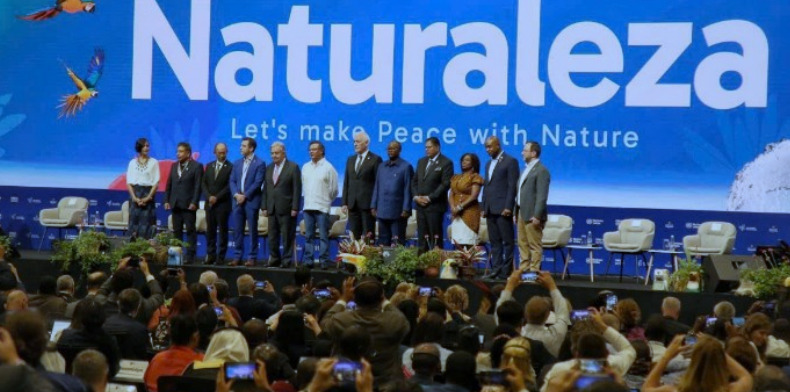
Leaders of countries attend the high-level meeting at COP16.
United Nations Secretary-General Antonio Guterres affirmed that nature is our life, and called for actions to strengthen national and international efforts towards a balanced and harmonious relationship with nature, protecting nature, conserving, restoring, using and sustainably sharing global biodiversity.
Also attending the conference are the heads of state of Brazil, Ecuador, Haiti, Guinea-Bissau, Guatemala, Mozambique and Surinam, and the vice-presidents of Bolivia, Gabon, Kenya, Cuba and Spain, along with nearly 100 ministers for the High-Level Session of COP 16 (taking place from 29 to 30 October 2024).
Countries reported on progress in implementing the Kunming-Montreal Global Biodiversity Framework (KMGBF), as well as the extent to which National Biodiversity Strategies and Action Plans (NBSAPs) are aligned with the GBF targets adopted at COP 15.
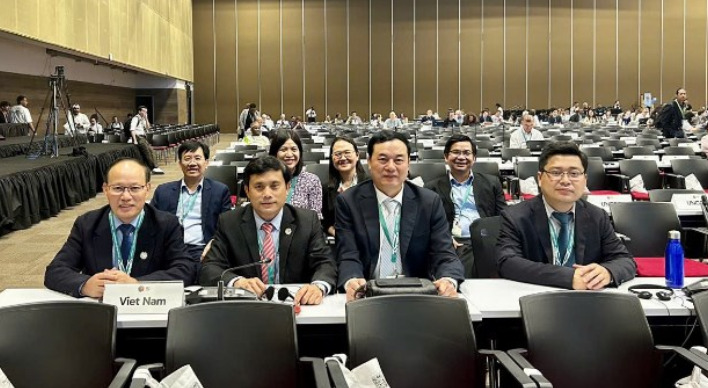
Vietnam delegation at COP 16.
Negotiations are underway to put into operation a multilateral mechanism (established by COP 15) for the fair and equitable sharing of benefits from the use of Digital Sequence Information (DSI), including a global fund.
Negotiators discussed and found common ground on how to mobilize additional resources to protect biodiversity and ensure that these resources are allocated in a timely manner to where they are needed most. The focus was on recognizing and leveraging the contributions of indigenous peoples and local communities as guardians of biodiversity and key partners in the conservation, restoration and sustainable use of biodiversity.
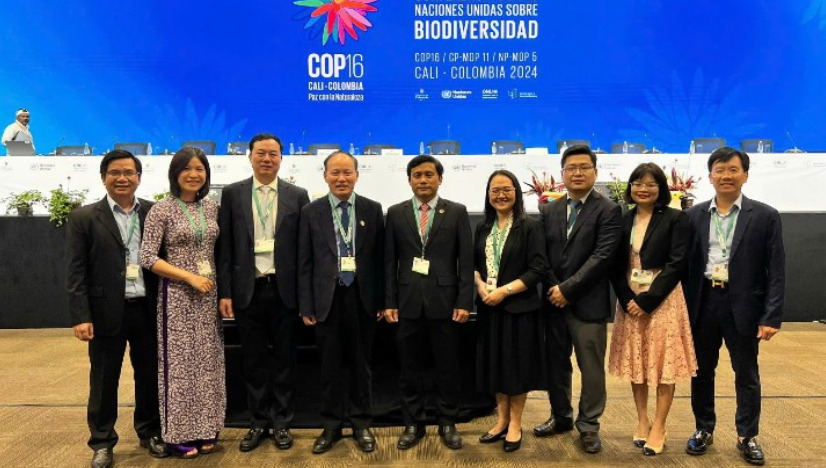
Image of the Vietnamese delegation at COP 16.
The stakes at COP 16 have never been higher. The discussions reflected the multifaceted challenges facing our planet. More importantly, they underscored the urgent need for collective action to achieve “peace with nature”.
Attending COP16 this time, the Vietnamese delegation included representatives of relevant ministries and branches (Ministry of Natural Resources and Environment, Ministry of Agriculture and Rural Development, Ministry of Foreign Affairs). The Vietnamese delegation attended plenary sessions, multilateral discussions, high-level meetings and participated in side events of the Conference.
Some notable side events:
On October 28, 2024, within the framework of the side event of COP 16, Mr. Le Tran Nguyen Hung, Deputy Director of the Department of Fisheries Surveillance under the Ministry of Agriculture and Rural Development of Vietnam, met and worked with Ms. Masha Kalinina, senior officer of the International Conservation Department of PEW Charitable Trusts and Ms. Silvia Bor, Director of the Marine Program of Pacific Environment to discuss opportunities for cooperation, support, and development of the marine conservation system and protection of aquatic resources in Vietnam.

Representative image of the Fisheries Control Department at COP 16.
Mr. Le Tran Nguyen Hung shared Vietnam's concerns and efforts in protecting marine biodiversity and aquatic resources. Many major policies and guidelines have been issued by the Party Central Committee, the Government, and the Prime Minister to expand and establish new marine reserves and aquatic resources protection areas, and restore marine ecosystems to reach 6% of the national sea area to be protected by 2030. Ministries, branches, and localities have integrated the task of protecting biodiversity, protecting the environment and aquatic resources into the activities of economic sectors, in order to minimize and prevent the loss of biodiversity in marine areas and specific ecosystems such as corals, seagrass, etc.
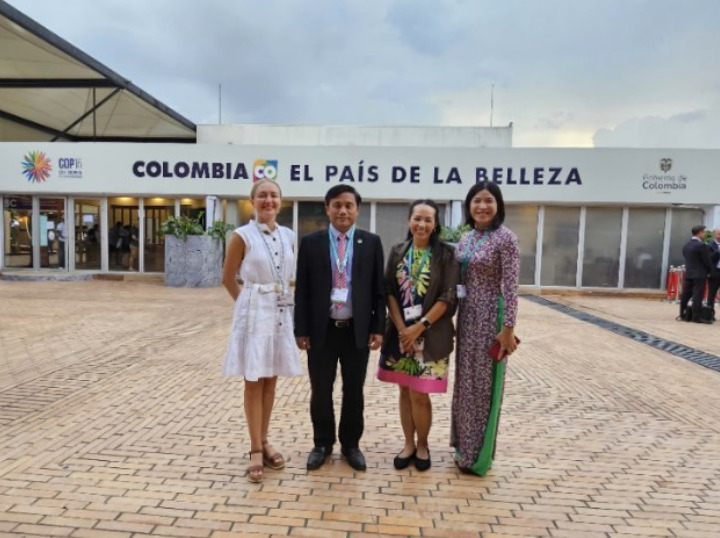
Photo taken after the meeting on the sidelines of COP 16. From left to right: Ms. Masha Kalinina (PEW), Mr. Le Tran Nguyen Hung (Department of Fisheries Surveillance), Ms. Silvia Bor (PE), Ms. Ngo Thi Thanh Huong (Department of Fisheries Surveillance).
In addition, Mr. Le Tran Nguyen Hung also shared the difficulties and challenges in marine conservation and resource protection that Vietnam has been facing, including: Lack of financial resources for investment in marine protected areas, limited management capacity for marine conservation, lack of tools to monitor and evaluate the effectiveness of marine protected areas, sustainable financial mechanisms to maintain the operation of marine protected areas, especially offshore marine protected areas and conflicts between marine protected areas and activities of coastal economic sectors,...
The other side highly appreciated Vietnam's efforts in protecting marine biodiversity, preserving the sea, protecting aquatic resources, especially Vietnam's declaration of support for the global 30 x 30 target at COP 15 (Kunming - Montreal). Vietnam has been proactive and actively integrating the goal and content of biodiversity protection into the fisheries sector and achieved positive results.
The parties discussed and proposed a number of promising contents for cooperation and support to develop and expand the marine conservation network, protect aquatic resources and build a regular communication mechanism between the parties to share cooperation opportunities, contributing to achieving national and global goals.
On the morning of October 31, 2024, Mr. Le Tran Nguyen Hung - Deputy Director of the Department of Fisheries Control participated in and co-chaired a high-level dialogue event with the theme "Mainstreaming biodiversity within and across sectors to prevent and reverse biodiversity loss by 2030". Attending and co-chairing the event were representatives of countries and international organizations: Australia, Canada, Costa Rica, Colombia, Germany, Georgia, Kenya, the Netherlands, Peru, South Africa, Pacific Environment, Pew, TNC, WCS, and WWF. Attending the event were about 100 delegates from countries, scientists, and international organizations.
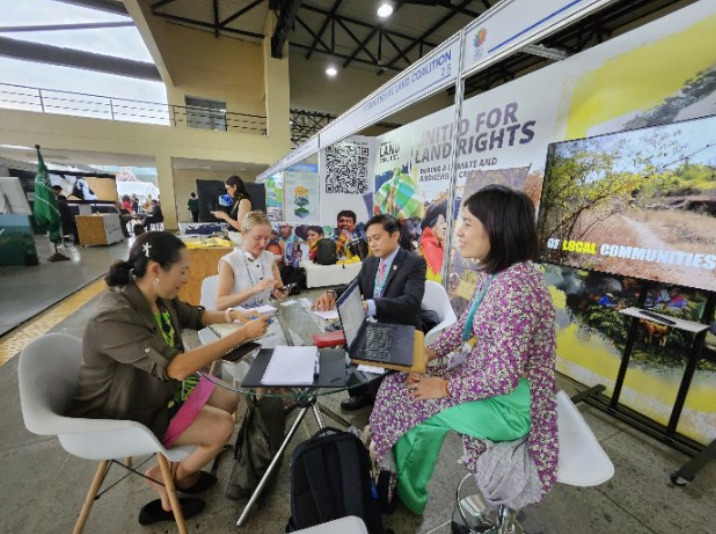
Image of the meeting on the sidelines of COP 16.
At this dialogue, Mr. Le Tran Nguyen Hung gave a speech on Vietnam's experience in integrating biodiversity protection goals and contents in the fisheries sector. Many major policies and guidelines issued by the Central, Government, Ministries, and localities have mentioned and integrated biodiversity protection tasks into the fisheries sector's activities. Specifically, Vietnam promotes aquaculture development to reduce pressure on resource exploitation activities; promotes marine farming with high technology, new technology, and environmental friendliness. Organize fisheries exploitation in accordance with the potential of fisheries resources of each sea area in an effective, sustainable, and responsible manner,... Build and develop circular economic models and green economies in the fisheries sector. Strengthen the protection and development of fisheries resources, expand marine reserves, fisheries resource protection areas, areas where fisheries exploitation is prohibited for a certain period of time, and areas where natural migration routes of aquatic species occur; Forming and developing co-management models in aquatic resources protection.
Representatives of countries and organizations co-hosting the event also shared experiences in integrating biodiversity protection goals into other fields such as: Agriculture, tourism, forestry, etc.
The dialogue session lasted for 80 minutes, with a lot of information openly shared by delegates and guests. Through this event, the Vietnamese representative informed international friends about Vietnam's responsibility and efforts in protecting marine biodiversity, protecting aquatic resources, contributing to creating a planet "at peace with nature".
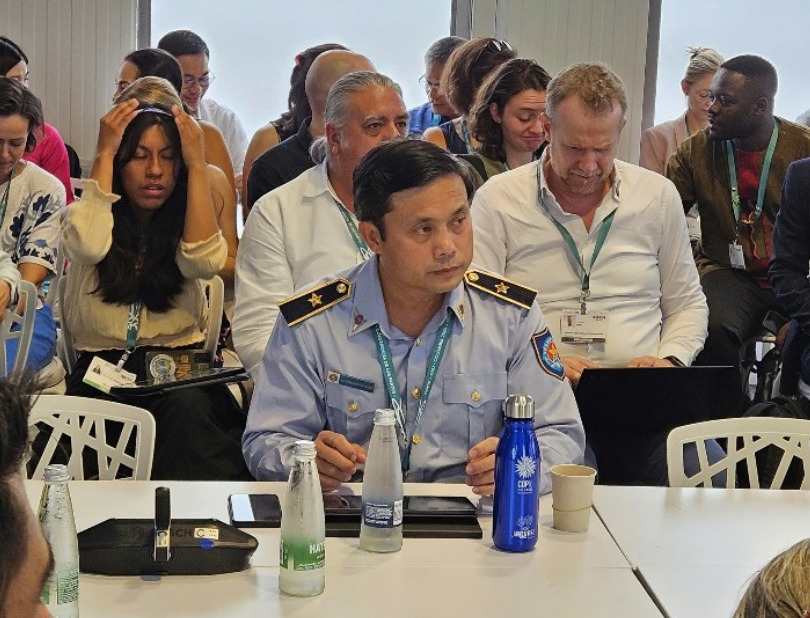

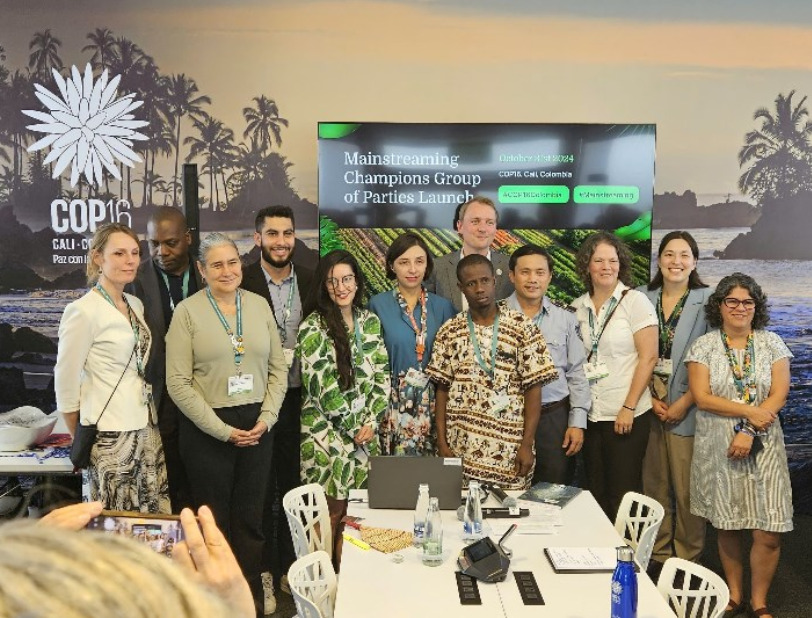
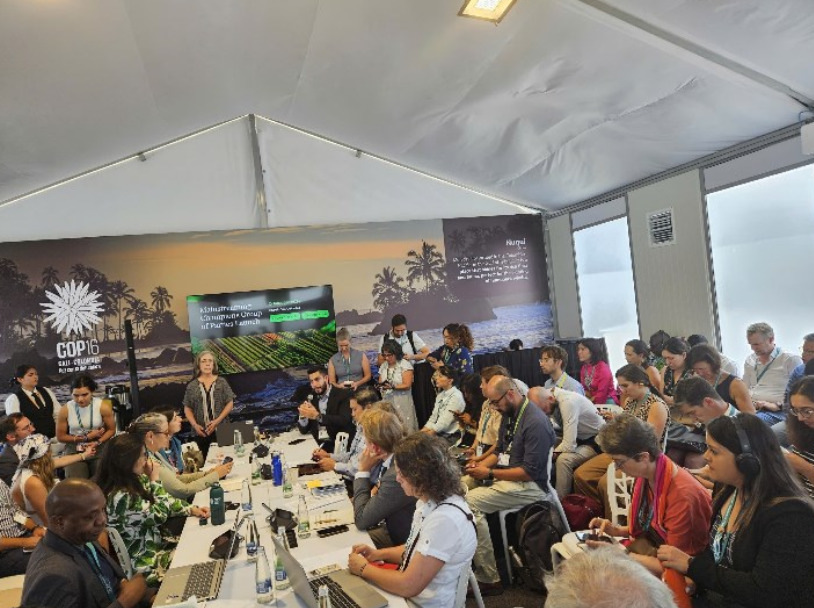
Some images of the High-Level Dialogue on October 31, 2024 at COP16, Santiago de Cali, Colombia. Source: Vietnam Fisheries Surveillance Department.
PV
Source: https://www.congluan.vn/the-gioi-thuc-hien-buoc-di-quan-trong-de-tao-dung-hoa-binh-voi-thien-nhien-post319563.html





![[Photo] "Ship graveyard" on Xuan Dai Bay](https://vphoto.vietnam.vn/thumb/1200x675/vietnam/resource/IMAGE/2025/11/08/1762577162805_ndo_br_tb5-jpg.webp)


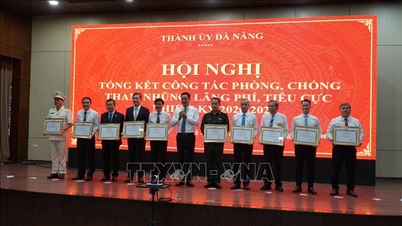





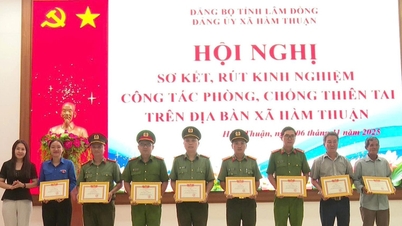


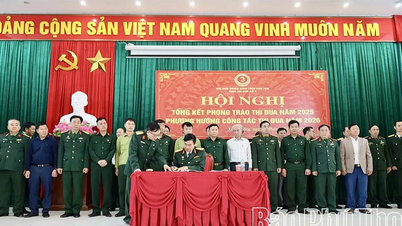

















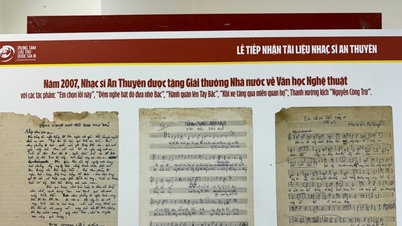
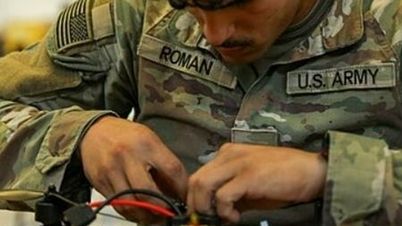
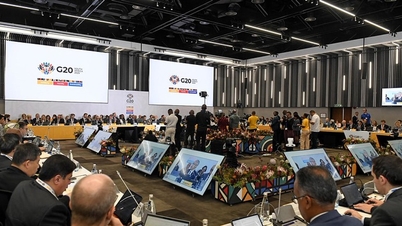
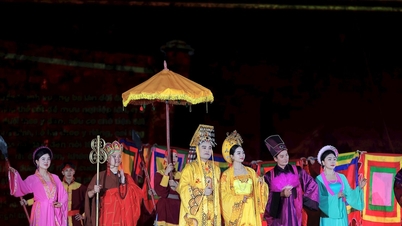



![[Video] Hue Monuments reopen to welcome visitors](https://vphoto.vietnam.vn/thumb/402x226/vietnam/resource/IMAGE/2025/11/05/1762301089171_dung01-05-43-09still013-jpg.webp)













































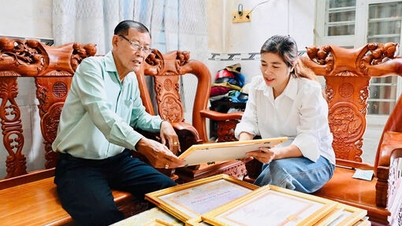

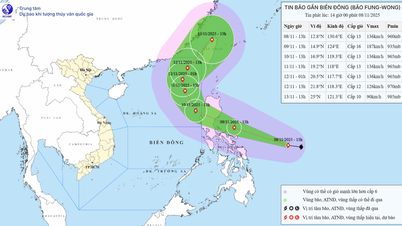



















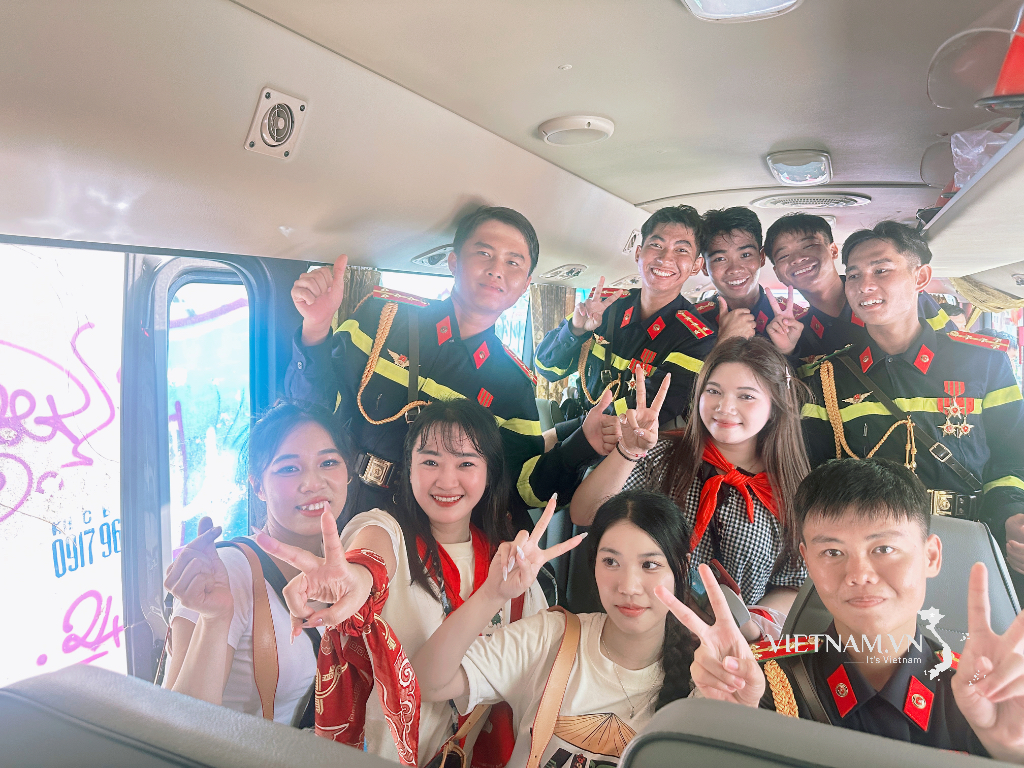
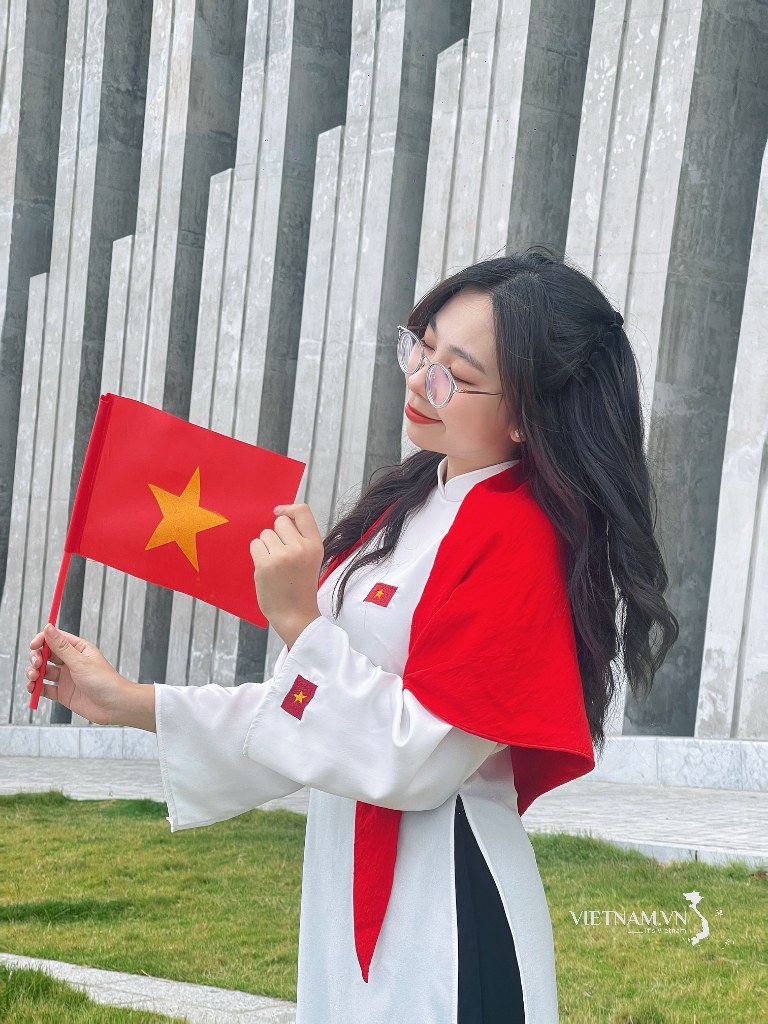


Comment (0)